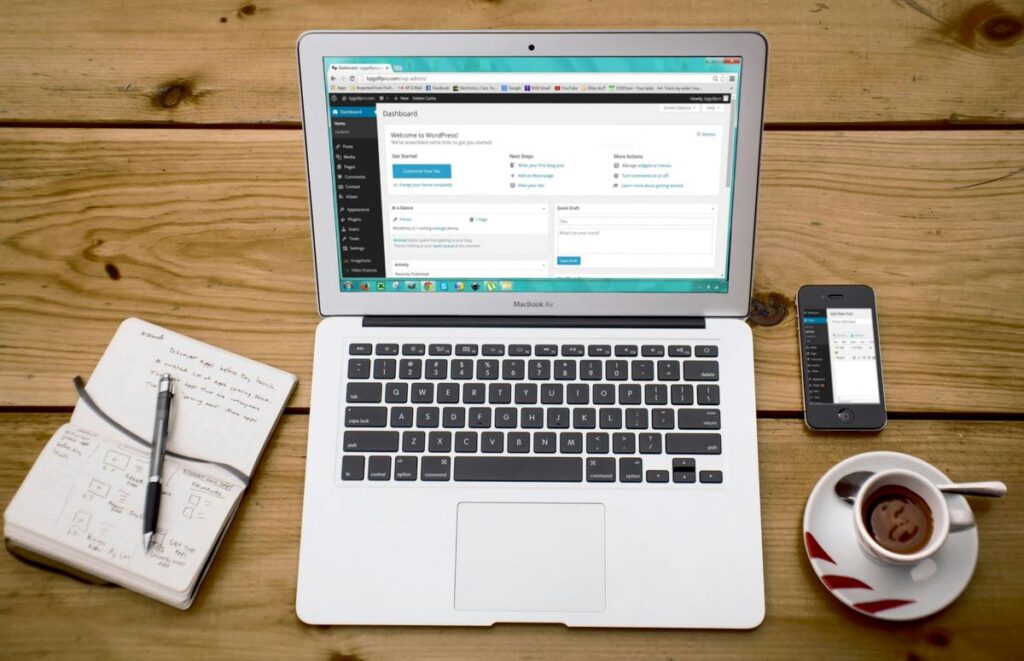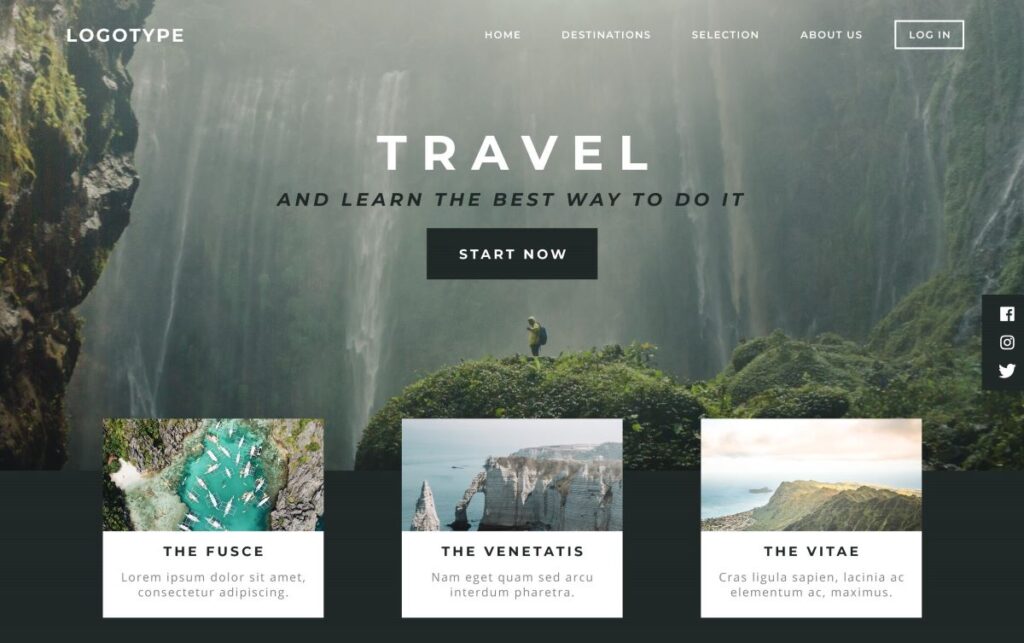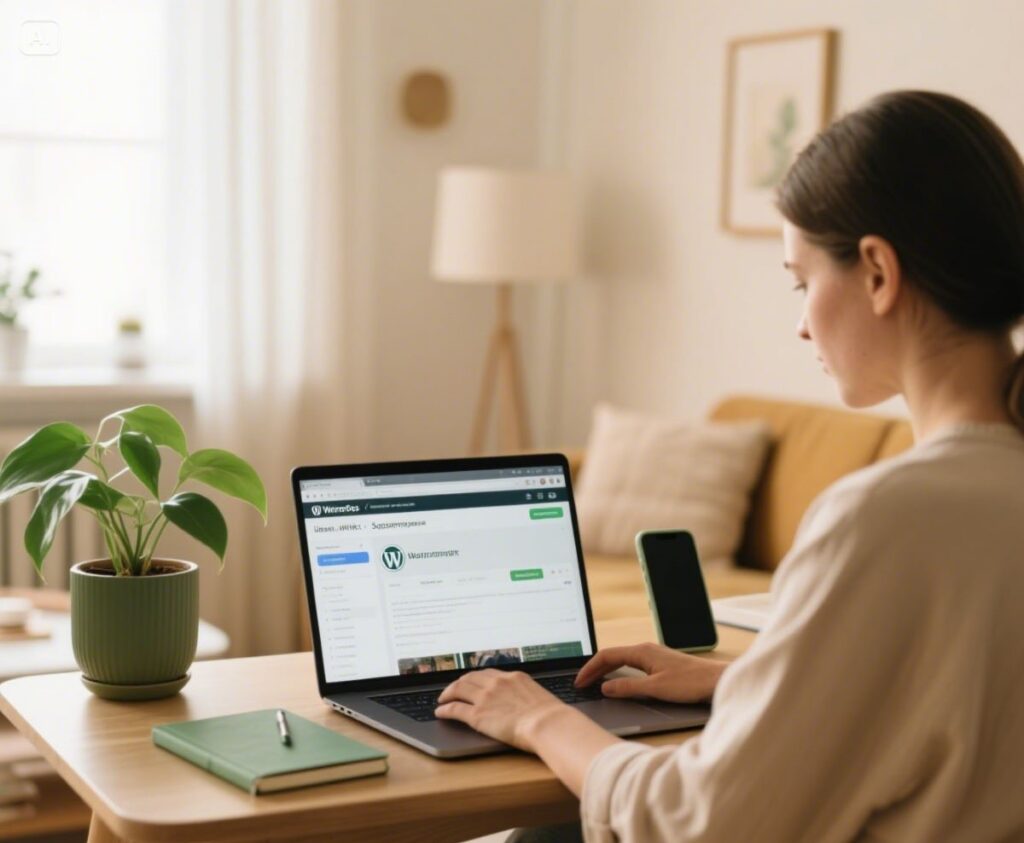Want to build a website from scratch but feel overwhelmed by all the tech jargon? You’re not alone — but you can do this. Whether you’re creating a portfolio, blog, business site, or online store, building your own site is absolutely within reach — even if you’re a total beginner.
This step-by-step guide will walk you through the entire process in plain English, with no code required (unless you want to use it).
Let’s get your site live — the simple way.
1. Define Your Website’s Purpose

Before anything else, ask:
What is your site for?
- Personal blog?
- Freelance portfolio?
- Business homepage?
- Online shop?
Your site’s purpose will shape your layout, features, and design choices. Write it down — clarity now saves time later.
2. Choose a Domain Name
Your domain name is your website’s address (like yourname.com). Pick something:
- Memorable
- Easy to spell
- Short (if possible)
- Relevant to your brand or topic
Check availability using sites like Namecheap or GoDaddy.
Try to grab a .com, unless another extension fits better (like .org or .store).
3. Select a Website Platform

For beginners, drag-and-drop website builders make life easier. Popular options include:
| Platform | Best For |
| WordPress.org | Flexible, blog or business site |
| Wix | Drag-and-drop, easy for creatives |
| Squarespace | Beautiful templates, all-in-one |
| Shopify | Online stores & e-commerce |
🔧 If you want full control, go with WordPress + hosting. For speed and simplicity, Wix or Squarespace are great.
4. Get Web Hosting (If Needed)
If you use WordPress.org, you’ll need a hosting provider. Popular beginner-friendly hosts include:
- Bluehost
- SiteGround
- Hostinger
Most offer 1-click WordPress installs and free domain registration.
If you’re using Wix, Squarespace, or Shopify — hosting is already built-in.
5. Pick a Website Template or Theme

Once you’re in your builder or platform:
- Choose a template (Wix, Squarespace, Shopify)
- Or install a theme (WordPress)
Pick one that fits your site’s purpose. Don’t worry — you can customize everything later.
6. Customize the Look and Feel
Make your site feel like you by editing:
- Fonts and colors
- Navigation bar
- Page layout
- Logo and favicon (use free tools like Canva)
Keep your design clean, readable, and mobile-friendly.
Check how your site looks on mobile — most traffic comes from phones now.
7. Build Your Core Pages
Every good website includes these must-have pages:
- Home: Welcome message, value statement, top links
- About: Who you are, what you do
- Contact: Email, social links, possibly a contact form
- Services/Portfolio/Shop: Your core offering
- Blog (optional but great for SEO!)
8. Add Useful Features or Plugins
Depending on your platform and purpose, you might add:
- Contact forms
- Social media feeds
- Email sign-up (use Mailchimp or ConvertKit)
- SEO tools (Yoast SEO for WordPress)
- Analytics (Google Analytics or built-in stats)
Don’t overdo it. Start with basics, expand later.
9. Secure Your Site With HTTPS
Most hosting platforms offer free SSL certificates, which give your site the secure https:// label. This builds trust and improves SEO.
- If you use a builder like Wix or Squarespace, this is done for you.
- On WordPress, activate SSL via your host or a plugin like Really Simple SSL.
10. Preview, Test, and Edit

Before going live:
- Click every link
- Check on desktop and mobile
- Proofread every page
- Test contact forms
- Ask a friend to review it too
Use tools like BrowserStack or responsive preview modes to check multiple devices.
11. Publish Your Site and Promote It
Click that Publish button — your site is live!
Now share it:
- On social media
- In your email signature
- On business cards
- In your bio links
- With friends, colleagues, and networks
Then… keep updating it! A website is a living thing.
Final Thoughts: Your Website Is Just the Beginning
Building a website from scratch might sound intimidating, but it’s really just a series of small, doable steps. With the right platform and a little focus, you can create something beautiful — even without a tech background.
Whether it’s a passion project or the start of your business empire, launching your website is a huge first step. You’ve got this.



GIPHY App Key not set. Please check settings